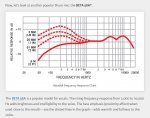Not sure how basic you want to go, but someone asked about the different types of microphones recently and there were some good replies.
Might be worth a look.
Whether a dynamic or condenser is best for your voice application...It really is just preference.
Well, preference and environment/equipment.
In an environment with other people working or live fans I'd want a dynamic mic very close to me.
They're generally more forgiving with plosives so close proximity work is easier, and that close proximity lets your signal be a lot louder relative to background noise.
On the other hand if your preamp isn't great quality and introduces hiss or doesn't have a lot of gain, the hotter source input of a capacitor mic can help to set you above that.
If both are a problem then getting good wind/blast protection on a capacitor mic, and staying close to it, is probably the best bet.

